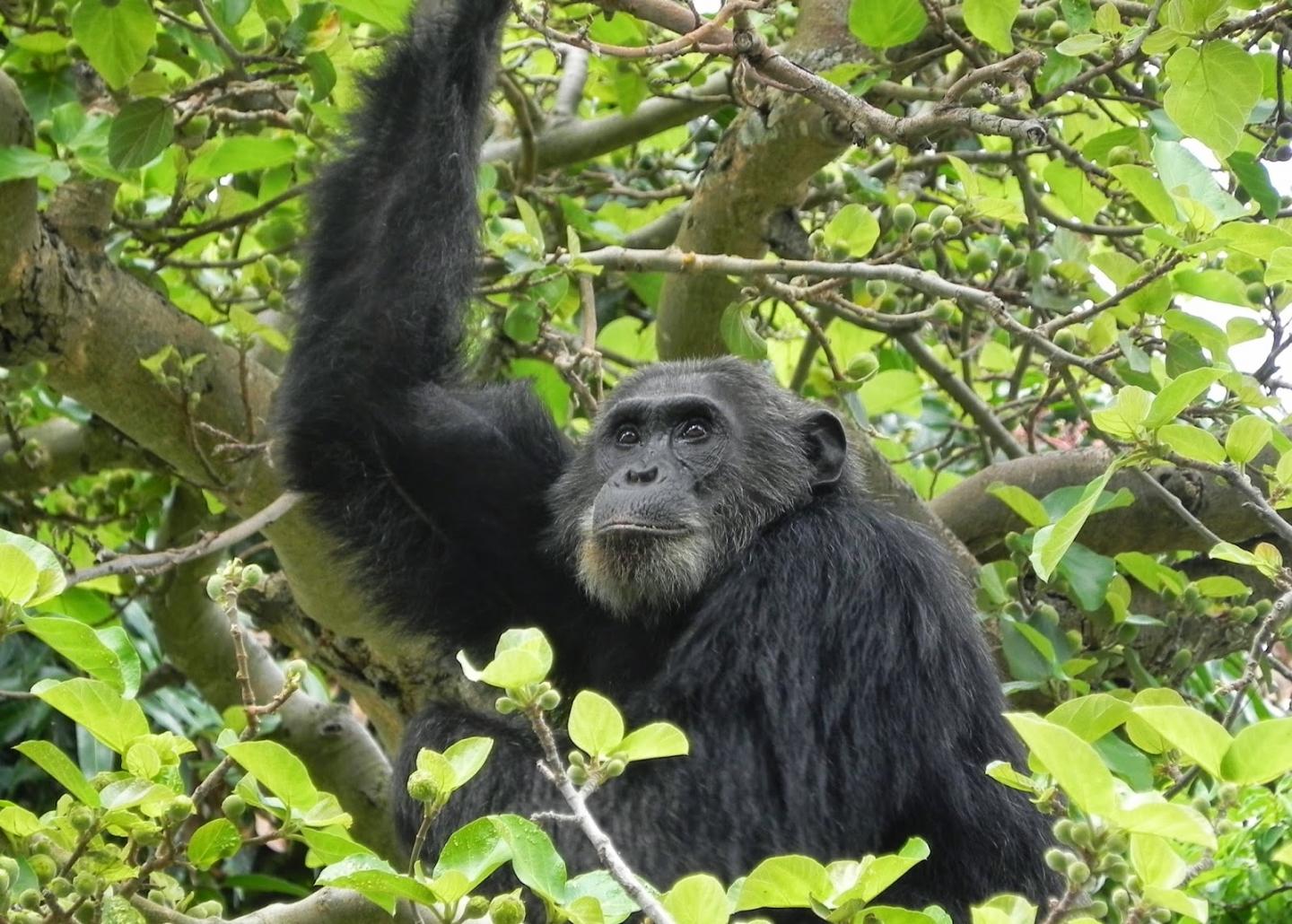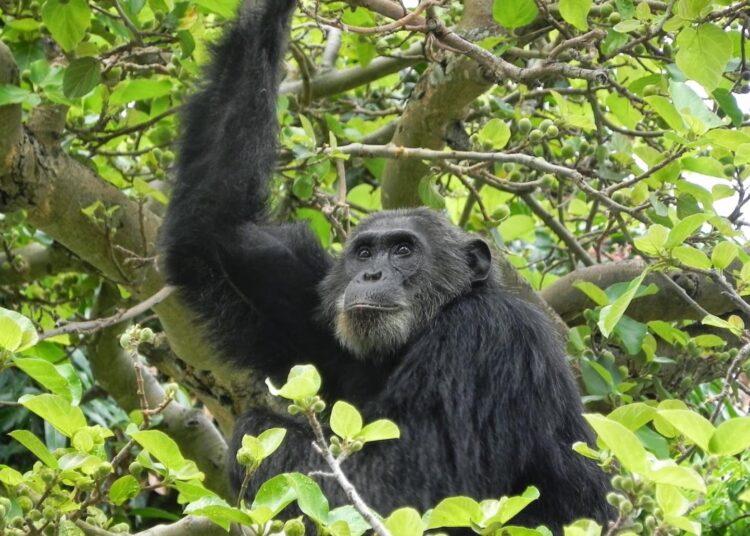Antimicrobial resistant bacteria getting into watershed

Credit: Thomas Gillespie
It’s well established that infectious disease is the greatest threat to the endangered chimpanzees made famous by the field studies of Jane Goodall at Gombe National Park in Tanzania. Now, new research led by scientists at Emory University shows that nearly half of the fecal samples from wild chimpanzees contain bacteria that is resistant to a major class of antibiotics commonly used by people in the vicinity of the park.
The journal Pathogens published the findings.
“Our results suggest that antibiotic-resistant bacteria is actually spreading from people to non-human primates by making its way into the local watershed,” says Thomas Gillespie, senior author of the study and associate professor in Emory’s Department of Environmental Sciences and Rollins School of Public Health. “People are bathing and washing in the streams, contaminating the water with drug-resistant bacteria where wild chimpanzees and baboons drink.”
The researchers tested for genes conferring resistance to sulfonamides — drugs often used by people in the region to treat diarrheal diseases — in fecal samples from humans, domestic animals, chimpanzees and baboons in and around Gombe National Park. They also tested stream water used by these groups.
Sulfonamide resistance appeared in 74 percent of the human samples overall, 48 percent of chimpanzee samples, 34 percent of baboon samples, and 17 percent of the domestic animal samples. Sulfonamide also showed up in 19 percent of the samples taken from streams shared by people, domestic animals and wildlife.
The researchers also tested all the groups in the study for genes conferring resistance to tetracycline — another class of antibiotics that is used much less frequently by people in the vicinity, likely due to its greater expense and the fact that it is less available in the area. As expected, very few of the fecal samples from any of the groups, and none of the water samples from the streams, showed evidence of tetracycline resistance.
First author of the study is Michelle Parsons, who did the work as an Emory doctoral student in Environmental Sciences. Parsons has since graduated and works at the Centers for Disease Control and Prevention (CDC). Co-authors include researchers from the Jane Goodall Institute, the CDC, the University of Minnesota and Franklin and Marshall College.
Gillespie is a disease ecologist who helped pioneer the “One Health” approach to protect humans, ecosystems and biodiversity. His projects in Africa, including the collaboration with the Jane Goodall Institute in Tanzania, are focused on helping farmers subsisting amid fragmented forests co-exist with primates and other wildlife in ways that minimize the risk of pathogen exchange between species, known as “spillover.” The virus that causes AIDS, for example, spilled over from chimpanzees to people.
“It’s important to consider both sides of the story — human health and well-being, as well as conservation of chimpanzees and other species,” Gillespie says.
Human encroachment has taken a toll on the great apes, due to fragmented habitat and the exchange of pathogens. Today, the number of chimpanzees in Gombe National Park are down to about 95.
Diarrheal diseases are common in the area and people often turn to cheap sulfonamide antibiotics that are available without a prescription at small stores that act as informal pharmacies, selling drugs, soap and other necessities. Wild chimpanzees also suffer from wasting diseases that can be related to bacterial and other enteric pathogens that affect their ability to maintain calorie intake and absorb nutrients.
“The majority of people in our sampling harbored bacteria resistant to the sulfonamide medication they are taking,” Gillespie says. “In those cases, they’re spending their money on a drug that is not helping them get better. Overuse of such drugs creates the potential for more lethal, antibiotic-resistant ‘super bugs’ to emerge.”
The research findings will now support the development of interventions. More guidance is needed locally regarding the proper use of antibiotics, Gillespie says. He adds that it is also important to improve hygiene for wash-related activities in area streams, as well as to improve disposal of human waste materials.
“By misusing antibiotics, people can actually harm not only themselves, but also the species they share an environment with,” Gillespie says. “After drug-resistant bacteria jump into chimpanzees, it can further evolve with the chimpanzees and then spill back into humans. We need to be thinking about infectious diseases within evolutionary and ecological frameworks, something that’s not often done in medicine.”
###
The study was funded by the Morris Animal Foundation, the Emory Global Health Institute, the Arcus Foundation, the Leo S. Guthman Foundation and the National Institutes of Health.
Media Contact
Carol Clark
[email protected]
Original Source
http://esciencecommons.
Related Journal Article
http://dx.





